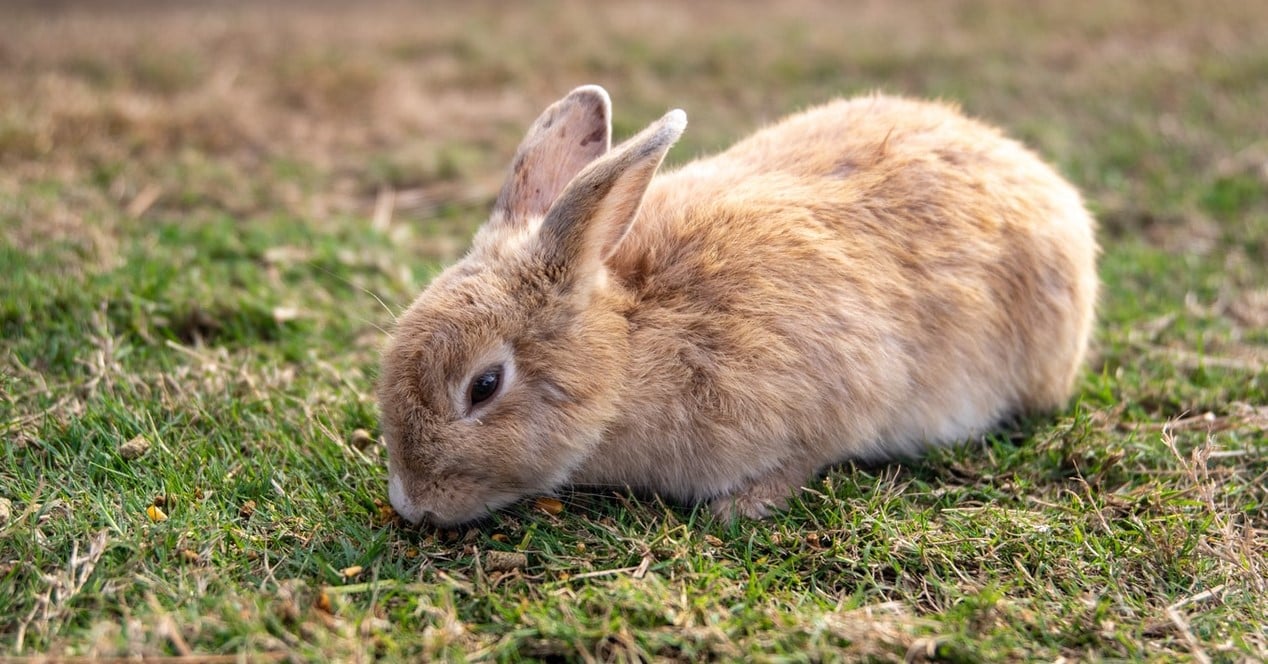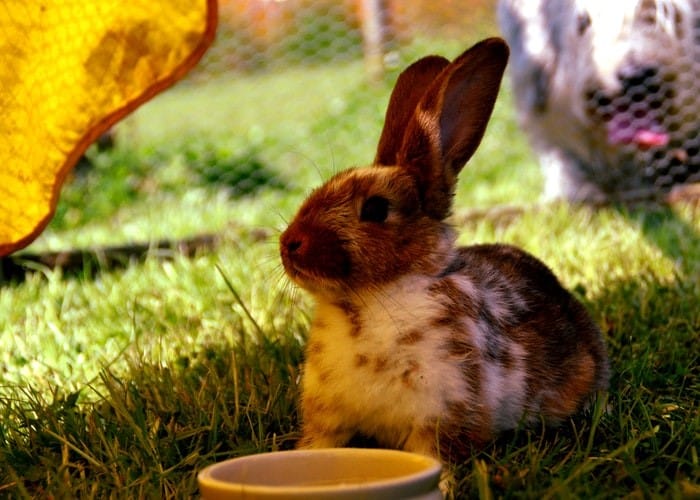
Currently there are many families with children who do not want cats, dogs or birds and choose to adopt a bunny. It is a sociable, affectionate, curious, funny, patient, easy and cheap animal to maintain and usually interacts well with children. Obviously it is a living being that needs care, attention, vaccinations and respect. Throughout this text we will explain something else and we will also focus on their diet, and on the toxic plants that can be found around them and we did not know it.
Bunnies are very friendly and have many good things, for example, they need little care unlike a dog or a cat, they last between 4 and 10 years, they always relieve themselves in the same place, without silencers, they can live alone, They usually have patience with children, they live with other pets such as cats and dogs, etc.
A priori it seems like the perfect pet, but let's not forget that for it to live well and happily we must let it rest, eat calmly, protect it from the cold and heat, vaccinate every 6 months of the myxomatosis vaccine and the hemorrhagic viral disease vaccine. In addition, we have to feed them in a varied and healthy way, not only feed, but vegetables, fruits and herbs. That is why today we are going to indicate which plants are not suitable for them, and thus avoid unnecessary suffering, pain, veterinarians, etc.
Rabbits must live in an espace where they can move freely. There are many keepers who put them in cages, and never come out for fear of escaping. These risks will be discussed in the following section.
Now we are going to focus on the needs of the animal, and that is that a bunny must leave the cage for at least 2 hours a day, without forgetting that in the cage he must be able to stretch vertically and horizontally without touching the bars, so the cage it should be long and tall.
Another important fact is that when you go out you must be out of danger, that is, that the balcony or terrace does not have spaces that lead to the void, nor are there predators nearby, nor objects that can hit you, nor anything.
Risks of letting a rabbit loose
Well, now that we are clear that the animal must leave the cage for at least 2 hours a day, we are going to explain the possible risks that this entails, not only for it, but for those around them. For example, when the animal is outside, it will relieve itself on the ground, which can cause bad breath, diarrhea, bad behavior and so on, in the dogs we live with.
The risks that exist for the rabbit are falls from the balcony, window, stairs, etc. The risk of flight, the possible removal of the animal, that consumes prohibited foods and becomes intoxicated, that drinks stagnant water with parasites or chemical products. etc.
Poisoning in animals is a serious condition, as they can lose their lives, but at least one dog or cat displays body language that helps us realize that something is not quite right. Nevertheless, in rabbits there is no effective non-verbal languageTherefore, if we suspect that they have consumed something toxic, we should go to a veterinarian. We will be able to realize, if he convulses, is very standing, has diarrhea, tearing, mouth ulcers, bleeding, difficulty breathing, etc.
Other risks are that something falls on him, that we get confused and our dog attacks him, that he crosses between the legs of a child and hits the rabbit's head with his foot, etc. Rabbits head is very sensitive. One bad hit and it stays put.
poisonous plants
What for us is a simple plant, for them it can mean death or serious poisoning that if not detected in time can cost you your life. As we have already commented before, it is difficult to know if our rabbit is suffering from poisoning, so it is best to prevent it from approaching or eating these types of plants:
- Ferns.
- Moss.
- bulbs.
There are other plants that do not sit well with our little long-eared, such as iceberg lettuce, potatoes and the potato plant, avocado (fruit and plant), beets (fruit and plant) and red chard or rhubarb. All this must be very far from our rabbit, if we do not want it to suffer serious consequences. That is why we always emphasize a conscious diet for our rabbit, since not everything is suitable for them.

indoor toxic plants
Inside our homes there are many toxic plants, not only for cats and dogs, but also for bunnies. This is why we are going to indicate which ones they are and surely they all sound familiar to us. The important thing is not to leave them within their reach, nor that their dry leaves fall to the ground or the pollen float through the air and fall on the rabbit's fur, these little animals wash themselves like cats.
- Poinsettia.
- Mistletoe.
- Holly.
- ficus.
- Cactus.
- Aloe vera.
- Dieffenbachia. Also known as car sheet, millionaire, lottery, amoena, etc.
- Philondendron.
Outdoor plants
Outside, our bunny will be able to rest in the sun, play, stretch freely, jump, play with balls or pots, dig, chase his life partners such as other rabbits or cats and dogs, etc. So far so good, but outside there are many toxic plants for them, including the ficus, which can be indoors and outdoors.
- oleanders.
- arasweet Also known as nightshade, bald grass, drunkard or climbing moray eel.
- Ferns.
- Ivy.
- Angel trumpets.
- nux vomica
- Nightshade.
- Ring.
- Asparagus.
- Common and black yew.
Flowers
Rabbits love to eat flowers, their favorite being dandelions. Despite the fact that they are true experts in knowing what they can and cannot eat, sometimes they get confused and end up eating something that poisons them. This is why we should not leave any of these flowers within their reach:
- Lily.
- Carnation.
- gladioli.
- Hyacinths.
- Orchids
- Daisies.
- Narcissa.
- Aconite.
- Geraniums.
- Dragon mouth.